Today marked the beginning of a transition from our intensive learning here in Cape Town and our move to Johannesburg tomorrow. Today we travelled south to the Cape, and met Rev. Peter Storey in a tiny little Methodist church that has been in continuous service in 1848, in Simonstown, South Africa. Pastor Storey is a Methodist pastor, writer, teacher, and extraordinary man. For 6 months he was the prison chaplain to Ahmed Kathrada (who we met) and Nelson Mandela on Robben Island — all this immediately after becoming a pastor!
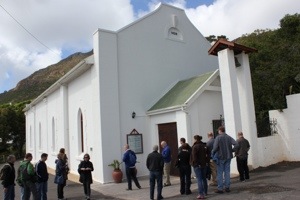
Pastor Storey went on to be a significant leader in the struggle against apartheid, and helped us begin to pull together the many, many strands of our experience here in South Africa so far. He helped us understand that apartheid came about because of theology through and through — it was theology, the theology of the Dutch Reformed Church, that began apartheid, formed it, shaped it, and supported it. And, he told us, it was birthed in the theological faculty of the University of Stellenbosch — where we spent the afternoon yesterday.
He described the goal of apartheid as a white state, and supporting that construction were five pillars:
- Race classification: to build a racial society, you had to be sure everyone was classified by race. Thus the “Pencil Test” and so forth as I described elsewhere; one additional wrinkle is that if you wanted to be classified as “white,” you had to prove you kept company with whites, and so needed to bring witnesses, a degrading and humiliating experience.
- Group Areas Act: This legislation gave the government the right to decide that this particular piece of desirable property, like District 6 in Cape Town which we saw on our first day, was “white” and all blacks and coloureds had to move — never mind they owned homes, had businesses, and a thriving community life.
- Bantu Education: In 1956, the Bantu Education Act established separate curriculae and expectations for black education vs. white education, with the goal that black education will keep blacks subservient. Pastor Storey said, “That is the single worst sin perpetrated against black South Africans” — two generations of sub-standard education designed to “keep them in their place.”
- Bantustan Policy: 3 1/2 million blacks were moved to various places in South Africa that the government decided, against history, that “your people came from here.” These “bantustans” were given a quasi-army and a puppet government, and then the regime declared this “separate but equal”
- Police State: in order to keep the natives from getting restless, the government instituted ever-more-repressive security legislation, until they were truly living in a police state.
Pastor Storey, as a young minister growing up under apartheid, came to understand the necessity of the Church to resist this evil, as he said, “against God, against the Son who on the Cross broke down barriers, against the Holy Spirit who at Pentecost created one community.” As a young minister, he asked himself: how do you minister (or, more generally, live as a faithful follower of Jesus)? His answer was a 4-point witness that served to keep himself on track throughout the years of his ministry:
- Speak truth without fear of failure, to expose the lie. So, his congregation began keeping a “Candle of peace and justice” on the altar, surrounded by barbed wire, which they lit each Sunday and intoned the names of those who had been arrested during the week and/or “disappeared.” He stressed that it is vital to be specific; as he said, “Repressive regimes are not afraid of generalities.”
- Bind up the broken: “You have no right to preach about wrongs in society unless you’re going to the suffering and serving them as best you can. You must explore the pain and wounds society is creating. Proclamation from the pulpit is empty, unless you’ve experienced the pain and suffering, to be with them and present.” Pr. Storey gave an example from his life of putting his body between the guns and his people, because he knew — or suspected — the police would hesitate just longer to shoot clergy.
- Live the alternative: “If you are proclaiming against something, you must be demonstrating the alternative.” So for Pr. Storey, preaching to an all-white congregation was hypocritical, so he integrated the congregation — and lost 200 white members over that. “You are God’s future in the now.”
- Work on strategies consistent with the mind of Christ, to transform or rid us of this repressive regime. Pr. Storey wryly noted that this was the area where people disagreed the most.
Pr. Storey gave us much to think about — as pastors, and as followers of Jesus. There was so much in his presence, his example, his witness, and his words, that I will need to think and pray for a long time about it — as I will over this entire trip.
Following lunch with Pr. Storey, we travelled to the Cape of Good Hope, where it was terribly cold and rainy, but we got to climb to the lighthouse and see this southwestern-most point in Africa, originally called the “Cape of Storms.”
But before that — penguins! We stopped by the Penguin Sanctuary, home to a host of African Penguins. Conley, you’ll be glad to know I snapped 300 pictures, so there is much more than this for you to enjoy!

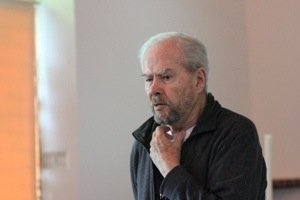
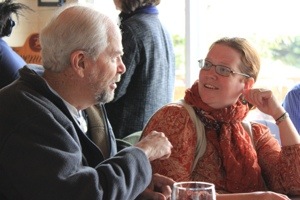
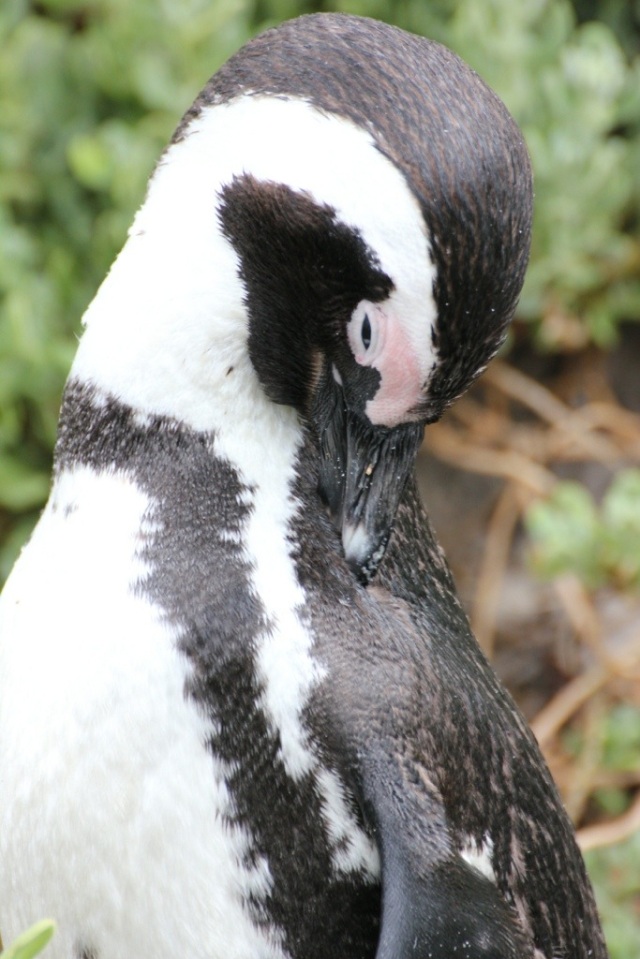
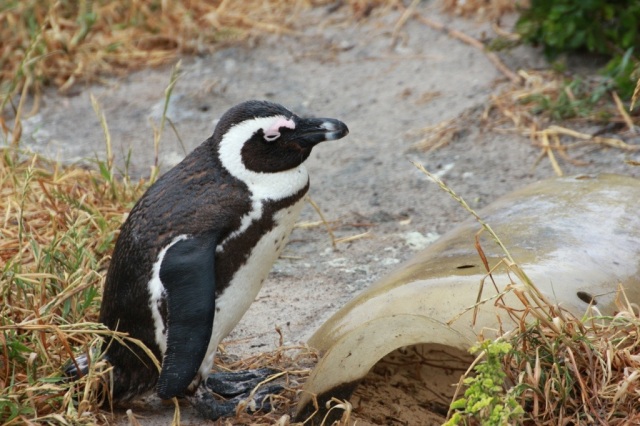


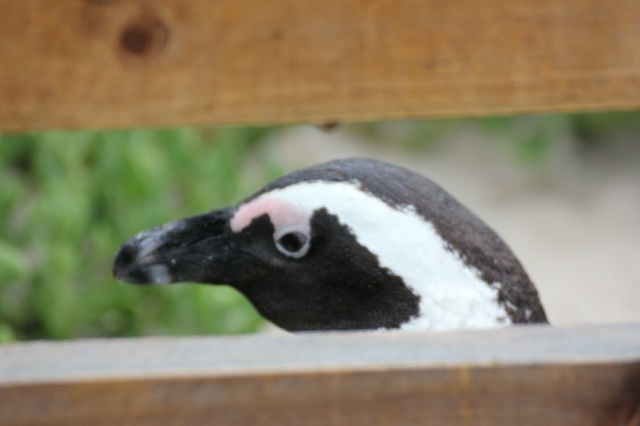
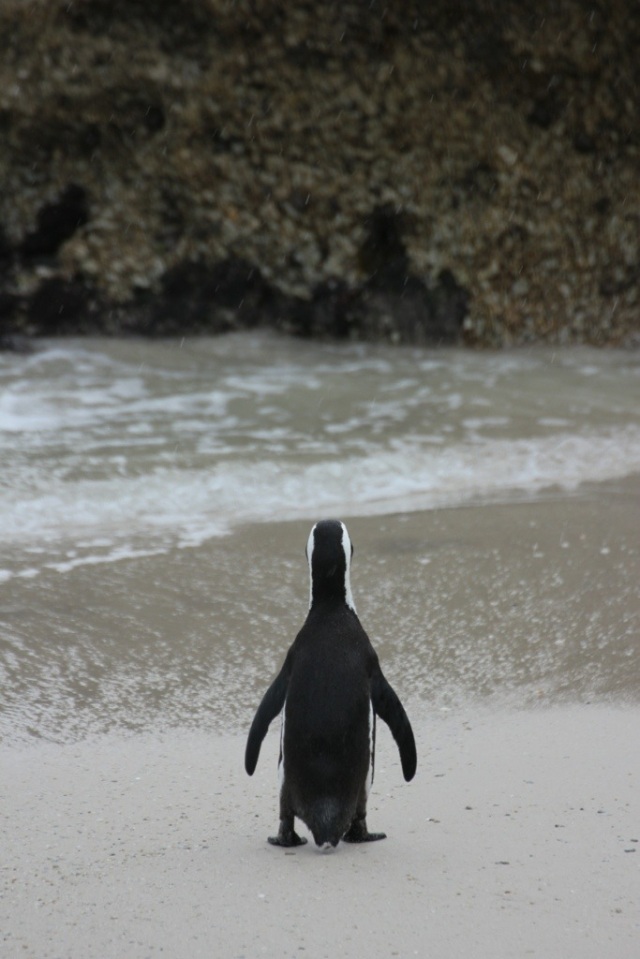
Love the penguin pics! Conley was asking, “where are all the others?”